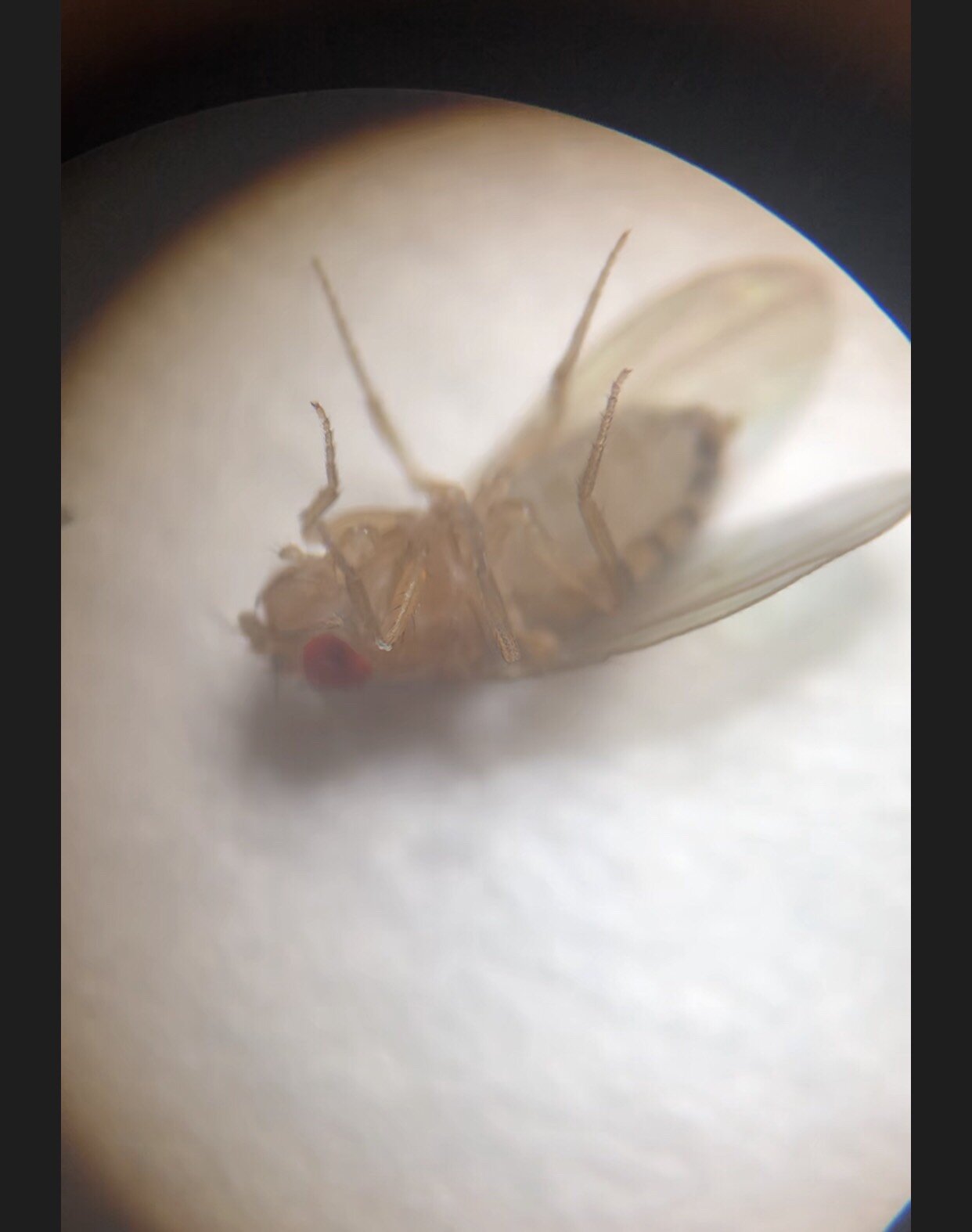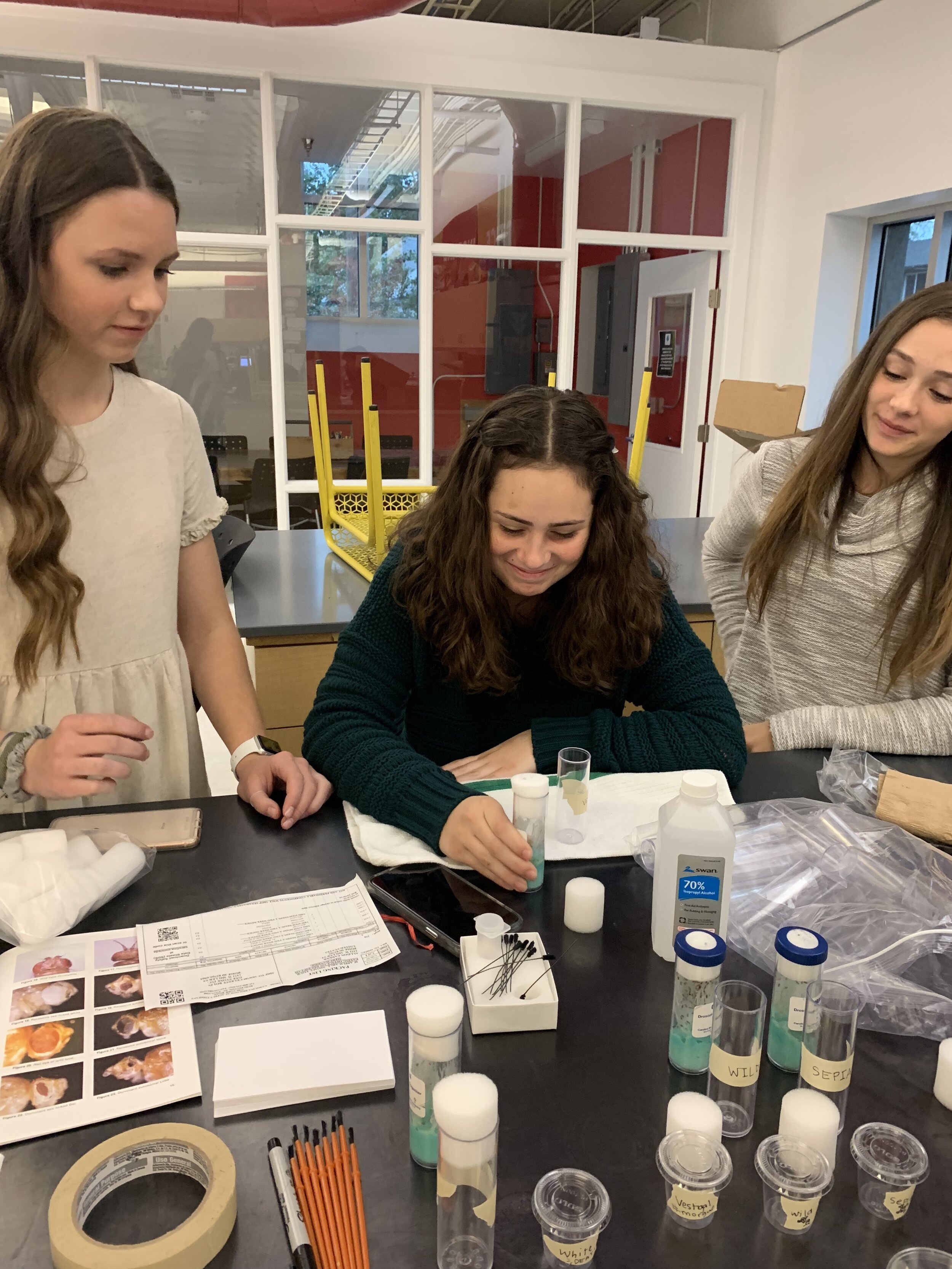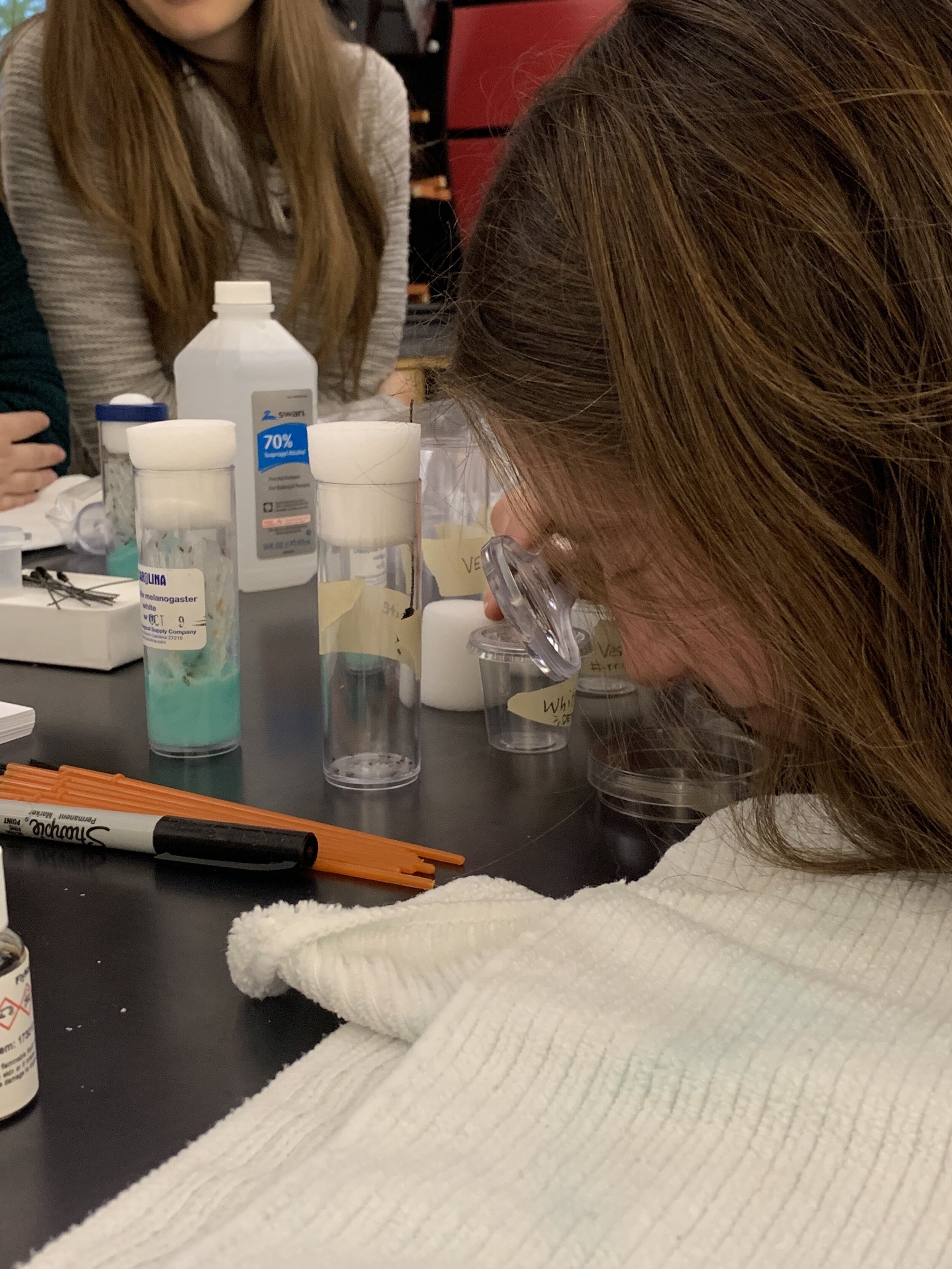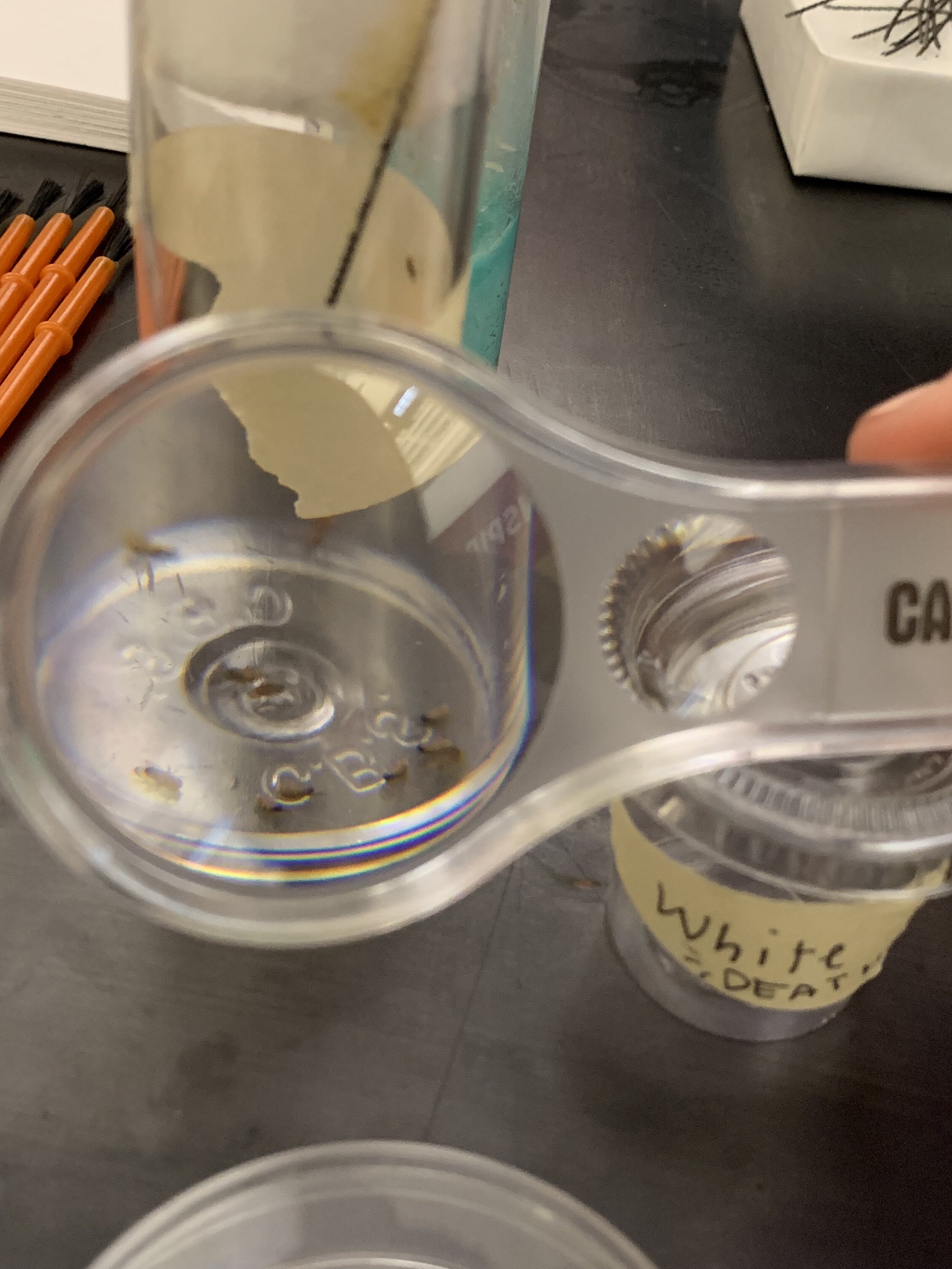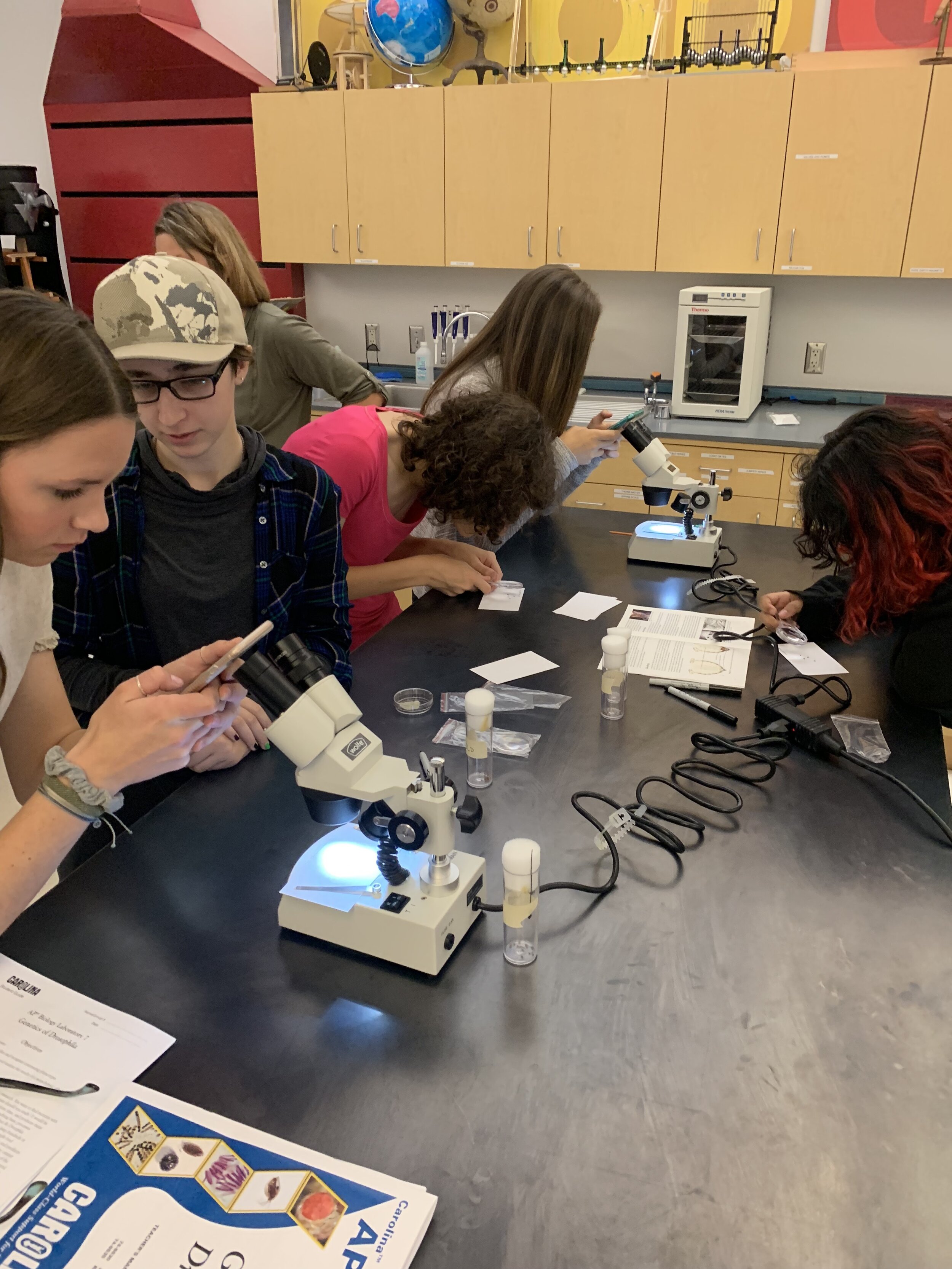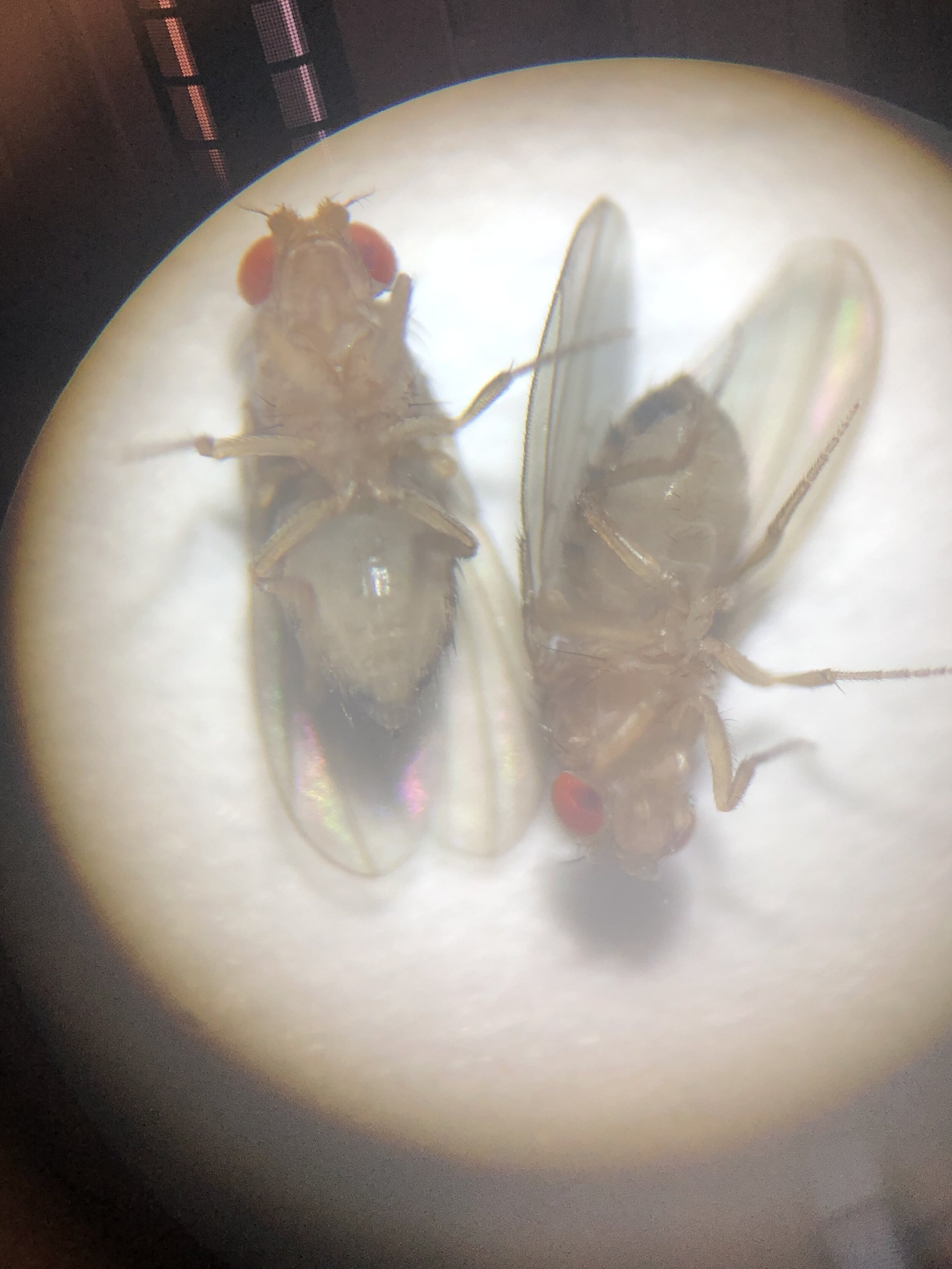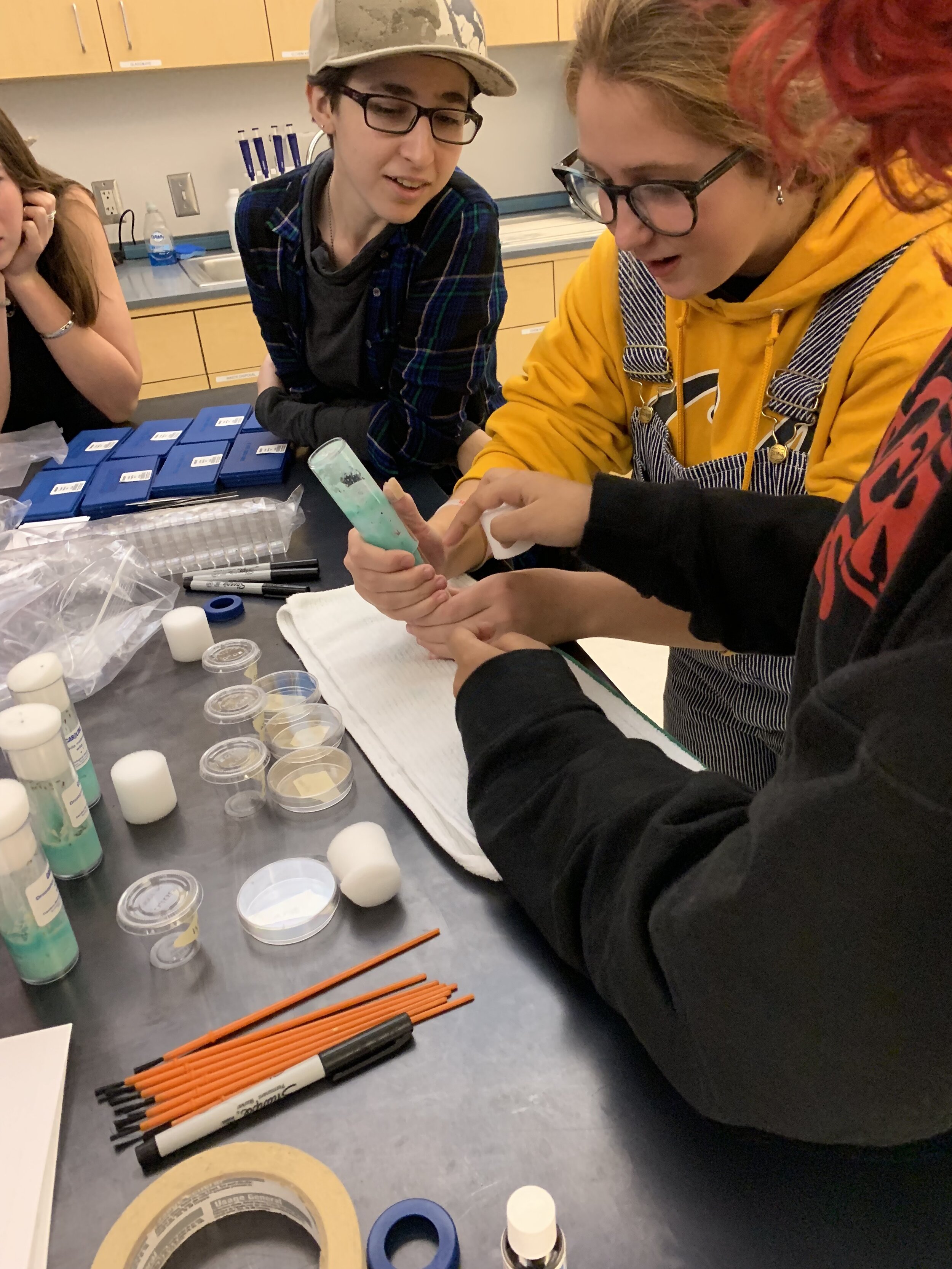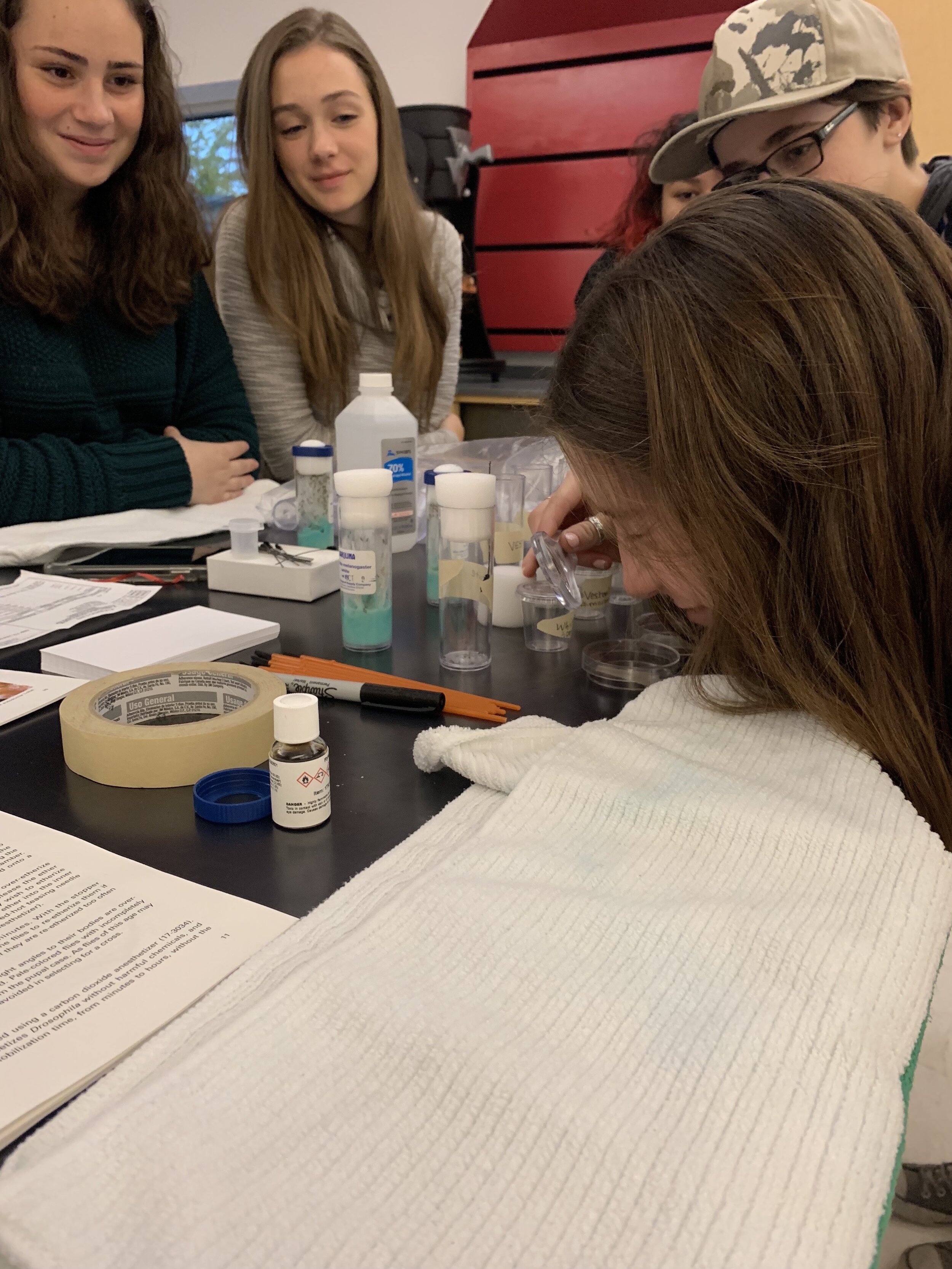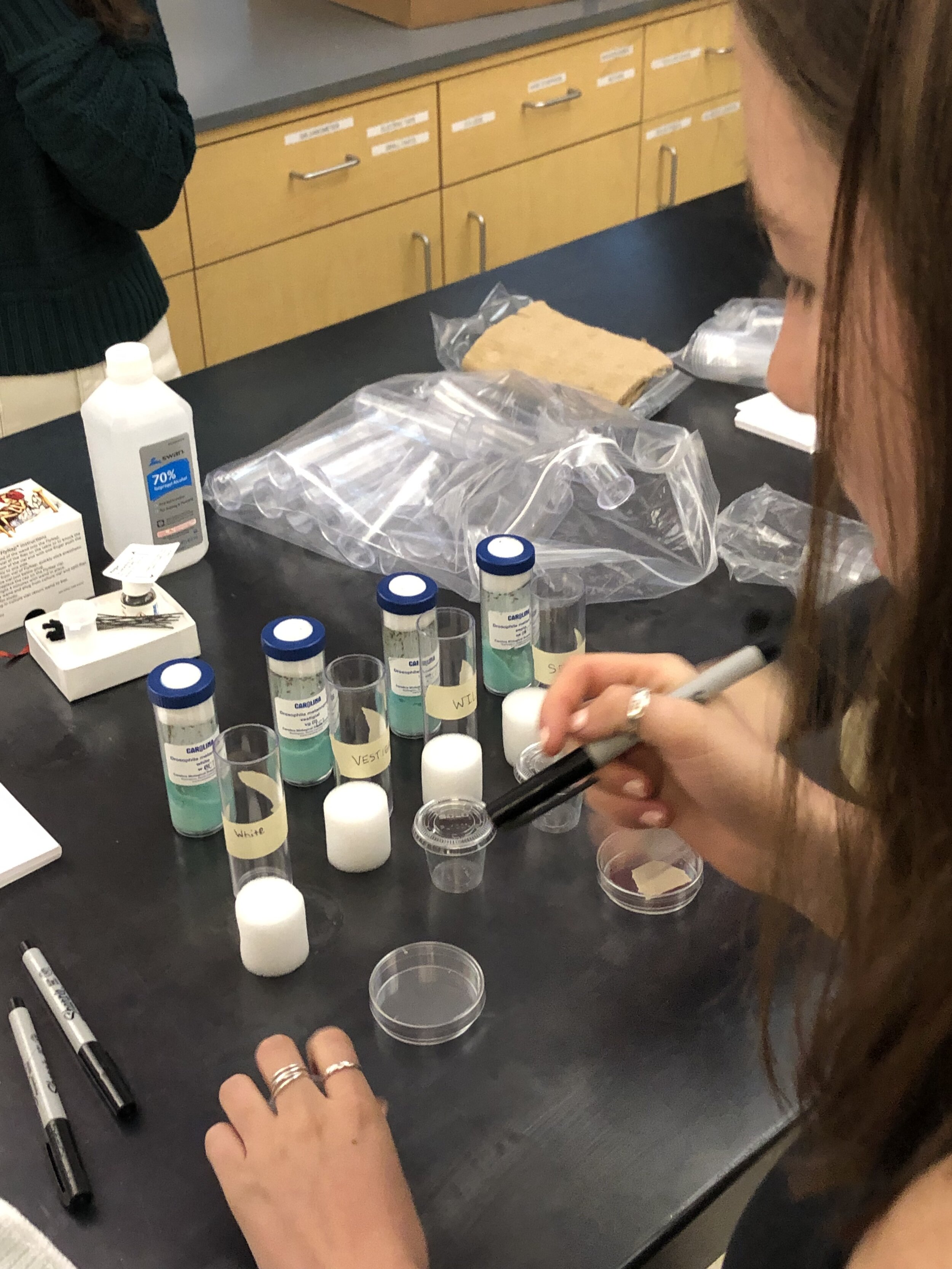The main goal for the 23x2: Introduction to Genetics Problem Solving Immersion in the fall of 2019 was to inspire scientific inquiry and foster problem-solving skills in the area of genetics. During the experience, DLab learner Alex K. showed significant growth in scientific inquiry, problem solving, and curiosity by starting with the question, “How can I use genetic problem solving to predict the genetics of offspring in fruit flies?” Here, Alex shares her reflection on the experience, and how it has inspired her to keep learning about genetics.
DLab Learner Alex K.
By Alex K.
This immersion was by far my favorite. I learned a lot and really grew my interest in genetics. I built new interests and was able to explore different fields in the topic. We started by regaining our confidence in punnet squares and predicting outcomes for genetic problem sets. I got more familiar with different genetic problem sets, such as problems relating to intermediate dominance, epistasis, co-dominance, and sex-linked genes.
We worked with a case study on glowing plants that investigated synthetic biology. We each took on a different perspective, such as the perspective of a scientist, investor, environmental group, or government regulator. During the case study, ethical and regulatory issues were brought up. We developed questions about synthetic biology that still need to be addressed. Such as “who will be in charge of regulations,” “how will wildlife be affected,” and “what could this lead to if allowed.” We also explored CRISPR and the doors it opened up for genetic editing. This lead to us looking at designer babies and the ethics behind it.
“A lot of people don’t do this kind of lab work until they’re in their graduate years. It’s amazing that we have all these resources. For me, discovering that passion, being able to do the lab work, be hands on, and honestly, just realizing how far this passion could go, made me realize it’s something that I want to do. This became what I want to do in life.”
We ordered Drosophila (fruit flies), which sparked a lot of interest. We were all new to working with flies and very nervous, however, we were excited to study them. We developed the basic skills of the process such as anesthetizing the flies with fly nap, transferring them to be tested, identifying traits, how to separate them by sex, and how to make their habitat. After learning the basics, we moved on to how to make our own crosses. We experimented with a lot of different ones but they weren’t very successful. However, after Fawn [Alex’s lab partner] and I learned more about how to make crosses properly. I became familiar with the proper Drosophila terminology and genetic notation. We proved our predictions from the Punnet squares, which was rewarding to see in real life.
We also sat in on a forensics lecture at BSU where we got the opportunity to hear from Chris Tapp. He was falsely accused of rape and murder and he reached out to the Idaho Innocence Project for help. After 20 years, they proved him innocent with recent DNA technology. His story was very inspiring and helped me see the power of genetics and how I can help people through it. Meeting a person who received justice due to genetics work made me interested in pursuing a career in the field.
The following day, we went to College of Idaho to work with students to test our mitochondrial DNA. We extracted mitochondrial DNA from our saliva using a centrifuge. It was mostly led by the college students but it was interesting to work in a lab. All of this really built on my interest in genetics and has inspired me to continue it throughout my life. I decided to continue working with the flies in my following immersion, Biostatistics. I am making crosses and truly understanding how they work. I am working with a Chi-Square test to understand further the relationships between F-1 and F-2 generations. I am continuing to look at case studies and challenging myself in the genetic field.
A lot of people don’t do this kind of lab work until they’re in their graduate years. It’s amazing that we have all these resources. For me, discovering that passion, being able to do the lab work, be hands on, and honestly, just realizing how far this passion could go, made me realize it’s something that I want to do. This became what I want to do in life.
Alex chose to continue this project into her next immersion experience in biostatistics, demonstrating a mindset of passion and purpose.
Good work, Alex!
